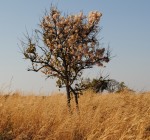 I do miss David Simpson! When I compare my writing to his I could probably have just contributed the title to this piece and his take would have done so much more justice to this subject. But there we are, it is left to lesser scribes to recount the tales of Zambia’s threatened natural treasures and the vicious and dangerous cycles of practice that are put in motion to senseless purpose.
I do miss David Simpson! When I compare my writing to his I could probably have just contributed the title to this piece and his take would have done so much more justice to this subject. But there we are, it is left to lesser scribes to recount the tales of Zambia’s threatened natural treasures and the vicious and dangerous cycles of practice that are put in motion to senseless purpose.
A pangolin is a nocturnal creature, with no particular habitat in Zambia, except that its mainstay is termites. I am reliably informed that it is, therefore, classed as an ‘insectivore’ like other ant-eaters. This makes it an integral part of the natural ecosystem, but also a very difficult animal to sustain in captivity.
That did not stop an attempted sale of this wild animal to the management of Munda Wanga – our very own botanical garden, environment education and wildlife sanctuary in Chilanga. Apparently there are willing buyers out there who believe that the pangolin’s scales carry similar medicinal qualities as rhino horn and indeed porcupine quills. So in an effort to ‘save’ the animal from certain death at the hands of ‘others’ it was offered instead to Munda Wanga – at a price.
The story has an eerie quality about it, in my mind perhaps only a bad second to stories of the trade in human body parts and the myths surrounding disadvantaged persons such as the albino population, as with the human latter, trade in wildlife products is a criminal offence under the laws of Zambia. Even so, recent evidence has it that the trade is increasing with no less than four or five reported cases of rescued pangolins in the past couple of months.
As with other illegal activities only a few selfish power-hungry individuals benefit. This is opposed to the potential income of many legitimate Zambian operators and their staff whose ratings rise to five-star in the tourist industry if they can boast of pangolin sightings on their routine night drives. The pangolin is to the tourist industry a ‘mini-rhino’. This is apart from the excitement and thrill derived from the experience that can be availed by an institution like Munda Wanga through their educational activities with young people of what looks like a miniature dinosaur, and the opportunity for writers like me to have an intriguing subject to investigate – the benefit chain is unimaginable.
The story of the attempted sale in this case has a happy ending with the perpetrators of the crime being arrested and charged by vigilant Zambian Wildlife Authority (ZAWA) officers followed by a successful release back into the wild of our hapless pangolin. However, the challenge is definitely with us all;
– To raise the alarm and identify and discourage the promoters of this illegal trade,
– To invest even more in the strength and stability of our wildlife policing system at official and community levels, and
– To advocate strongly against deadly myths that threaten to rob Zambians of their rightful natural inheritance for this and coming generations.
For more information contact: Munda Wanga Environmental Park* Email: mundawanga@iconnect.zm; Office: 0211 278-614 or visit www.mundawanga.com.
*Special Discounts on gate fees at the park are extended to Chongololo Clubs and school parties in general!
Leave a Reply
You must be logged in to post a comment.